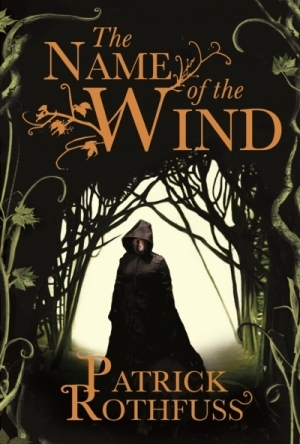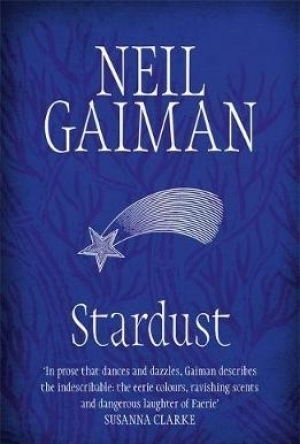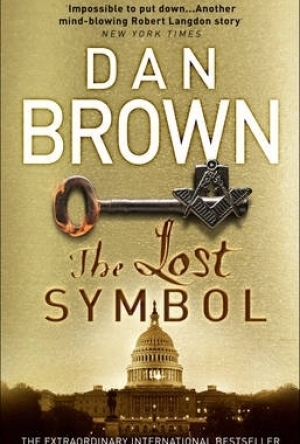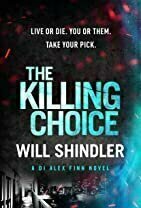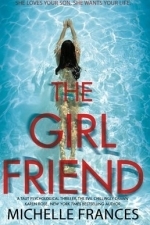Search
Search results
BookwormMama14 (18 KP) rated Fire and Ice (Wild at Heart, #3) in Books
Jan 2, 2019
Bailey has hidden her true identity for years. Will she be able to set aside the charade, forgive herself for her past and open herself to love?
In 1866 it is unheard of for a woman to be a successful rancher. But that is exactly what Bailey Wilde has done. Through hard work, sheer determination and hiding that she is indeed a woman, her ranch is thriving. Partly due to the fact that she has homesteaded directly across the opening to a lush canyon owned by Gage Coulter. Gage will stop at nothing to get his canyon back, even if it means blowing up the mountain. Bailey's sisters have both married and moved away just as winter is setting in. As she endures the frigid winter months alone, she longs for companionship. And then Gage shows up with a proposal that could drastically change their lives. Will they both be able to overcome their stubborn independence and work together as a team? Will their fire and ice spark into love along the way?
"That's not God refusing to forgive you...It's you refusing to forgive yourself."
Fire & Ice was a wonderful completion to the Wilde sisters' stories. Mary Connealy's unique story line was very interesting. I did get frustrated with Gage's attitude a couple of times, and the situation was never fully resolved. But all in all, this is a tremendous story of the journey of forgiving yourself. My only real complaint about this book is the cover. Bailey is described multiple times as having warm hazel eyes that burn like fire. But in the picture, she has very blue eyes. Her hair is also described as short, yet curly. And the picture shows straight hair, there is a picture on the binding with her hat removed showing very straight hair. I know I shouldn't judge a book by it's cover, but there you have it. The cover aside, Fire & Ice was yet another wild journey of the last Wilde sister finding forgiveness and love. This book can stand alone, but I highly recommend reading the whole series!
I received a free copy of Fire & Ice from Bethany House Publishers in exchange for my honest review.
In 1866 it is unheard of for a woman to be a successful rancher. But that is exactly what Bailey Wilde has done. Through hard work, sheer determination and hiding that she is indeed a woman, her ranch is thriving. Partly due to the fact that she has homesteaded directly across the opening to a lush canyon owned by Gage Coulter. Gage will stop at nothing to get his canyon back, even if it means blowing up the mountain. Bailey's sisters have both married and moved away just as winter is setting in. As she endures the frigid winter months alone, she longs for companionship. And then Gage shows up with a proposal that could drastically change their lives. Will they both be able to overcome their stubborn independence and work together as a team? Will their fire and ice spark into love along the way?
"That's not God refusing to forgive you...It's you refusing to forgive yourself."
Fire & Ice was a wonderful completion to the Wilde sisters' stories. Mary Connealy's unique story line was very interesting. I did get frustrated with Gage's attitude a couple of times, and the situation was never fully resolved. But all in all, this is a tremendous story of the journey of forgiving yourself. My only real complaint about this book is the cover. Bailey is described multiple times as having warm hazel eyes that burn like fire. But in the picture, she has very blue eyes. Her hair is also described as short, yet curly. And the picture shows straight hair, there is a picture on the binding with her hat removed showing very straight hair. I know I shouldn't judge a book by it's cover, but there you have it. The cover aside, Fire & Ice was yet another wild journey of the last Wilde sister finding forgiveness and love. This book can stand alone, but I highly recommend reading the whole series!
I received a free copy of Fire & Ice from Bethany House Publishers in exchange for my honest review.
Marylegs (44 KP) rated The Name of the Wind in Books
Aug 14, 2019
The Name of the Wind can only be classed as an epic fantasy. The first installment in a series of books I will definitely be carrying on with. I am a great lover of fantasy books, I will not compare it to others as I don’t believe it is that similar to others I have read. True, certain elements seem familiar, the loss of loved ones, finding one’s self, falling in love with an unobtainable person, continuing an education above the class of the main character… I could go on but I won’t. However for all these similarities, it still felt new and fresh in its delivery.
The main character Kvothe is likeable and I was really routing for him. The bulk of the story is told from his perspective as he endeavours to tell his story to a scribe who had come seeking the truth about his extraordinary life. We follow his story from his unlikely beginnings as part of traveling troupe to him becoming nothing short of a hero.
As a sucker for love, I have to say some of the most enjoyable sections of the book involved Denna, as soon and the two meet I could feel the glimmerings of hopefully first love. Without giving anything away, this love doesn’t go the traditional way that most stories would travel. But it is obviously there and knowing that there are more books to read I am sure there is more to Kvothe and Denna story together.
My least liked character has to Ambrose (what a silly girly name to begin with). He is petty and unlikeable from the on start. I feel the dislike between Kvothe and Ambrose will culminate into something sinister which no doubt will be an integral part of the tale…. But I really wish he would get his comeuppance…. Soon.
If like me you want to read a fantasy book that has all the elements you would want; love, conflict, revenge, magic, friendship and injustice. But doesn’t play by all the rules and is obviously building strong foundations towards what hopefully will be an impressive ending, then I believe this book is for you.
The main character Kvothe is likeable and I was really routing for him. The bulk of the story is told from his perspective as he endeavours to tell his story to a scribe who had come seeking the truth about his extraordinary life. We follow his story from his unlikely beginnings as part of traveling troupe to him becoming nothing short of a hero.
As a sucker for love, I have to say some of the most enjoyable sections of the book involved Denna, as soon and the two meet I could feel the glimmerings of hopefully first love. Without giving anything away, this love doesn’t go the traditional way that most stories would travel. But it is obviously there and knowing that there are more books to read I am sure there is more to Kvothe and Denna story together.
My least liked character has to Ambrose (what a silly girly name to begin with). He is petty and unlikeable from the on start. I feel the dislike between Kvothe and Ambrose will culminate into something sinister which no doubt will be an integral part of the tale…. But I really wish he would get his comeuppance…. Soon.
If like me you want to read a fantasy book that has all the elements you would want; love, conflict, revenge, magic, friendship and injustice. But doesn’t play by all the rules and is obviously building strong foundations towards what hopefully will be an impressive ending, then I believe this book is for you.
This is the second Neil Gaimen book I read, my first taste was American Gods which I really enjoyed. I had been thinking of reading Stardust for quite some time. Having watched the film version many times (love it by the way) I was intrigued to see how the book measured up. Normally I read a book and then see the film, but in this instance I was unaware there was a book. I won’t really compare the two together as actually they are pretty different and, I do love the film. That said I really enjoyed reading Stardust, I have to say I was really surprised by the content. Having assumed it was more of a children’s story I must say I was taken aback by the more adult themes included. But I am a reader who does not shy away from more graphic details, in fact I prefer their inclusion. It makes stories feel less teen-angst like. In real life that’s what sexual tension brings. I didn’t feel it was overdone or smutty, it was just there right where it was meant to be.
Basically this was a children’s tale for adults. I enjoy Gaimen’s writing style and found myself completely immersed in this world he created. It was a fairly short book and I wish it had been longer, just because I wasn’t ever bored or feeling like the story wasn’t going anywhere. I think I could have happily journey along with Tristran and Yvaine for another 200-300 pages. Although with it being a nice small book I can see myself returning to it again in the future for a happy quick read. Just as my one little bug bear I would have like more character development with Tristran, from his puppy love beginnings to him becoming real man. This may just be because I’ve seen the film first and I feel they brought that out of his character more so. Anyway, I think I will now have to read all of Gaimen’s other books, I feel really behind on the Gaimen Train.
Basically this was a children’s tale for adults. I enjoy Gaimen’s writing style and found myself completely immersed in this world he created. It was a fairly short book and I wish it had been longer, just because I wasn’t ever bored or feeling like the story wasn’t going anywhere. I think I could have happily journey along with Tristran and Yvaine for another 200-300 pages. Although with it being a nice small book I can see myself returning to it again in the future for a happy quick read. Just as my one little bug bear I would have like more character development with Tristran, from his puppy love beginnings to him becoming real man. This may just be because I’ve seen the film first and I feel they brought that out of his character more so. Anyway, I think I will now have to read all of Gaimen’s other books, I feel really behind on the Gaimen Train.
Corey Richard Bennett (10 KP) rated The Lost Symbol: (Robert Langdon Book 3) in Books
Jul 19, 2019
Drags on after action ends (1 more)
Unsatisfactory ending
Contains spoilers, click to show
Okay, so the third book in the Robert Langdon takes Robert through Washington D.C. as he tries to save a friend, who has been taken hostage. With help from the hostage's sister, Robert unravels a secret path by the Freemasons. Long story short, Robert saves his friend gets the girl and learns truths of the Freemasons no else has.
So overall the story is typical Dan Brown. Twists and turns at every turn, switching views from each chapter. Robert does Robert stuff with figuring everything out in due time. (By the way, I can't read these without thinking of Tom Hanks being Langdon anymore).
But the one thing I want to focus on is the villain. He is by far the most compelling part of this whole book. Spoiler is he dies about 3/4ths of the book in and once he is gone, that dragging on feeling sets in. There is no trouble, no sense of urgency and the book dies off after that for me. But back to our villain. He is revealed to be Mr. Hostage's son who was once thought dead, but more like transformed into a whole different person. You learn that he came from money, went to prison, is left there by his father, fakes his death, and then tries to steal a family heirloom he feels will help him unlock the secrets of Freemasonry and being the perfect human. My one gripe is Dan Brown pretty much tells you it's not the son, and then says oh yeah it is the son. There's a difference from being sneaky, and just lying to create suspense. Oh well, but before his death, the son is cunning, stealthy, and barbaric (drowning an assistant for a key card). He is a very interesting character and you do miss him once he is killed.
Overall its an okay book, but Inferno or Da Vinci Code were better stories, but if you like U.S. History, it should kill some time for you and keep you enthralled for most the book.
So overall the story is typical Dan Brown. Twists and turns at every turn, switching views from each chapter. Robert does Robert stuff with figuring everything out in due time. (By the way, I can't read these without thinking of Tom Hanks being Langdon anymore).
But the one thing I want to focus on is the villain. He is by far the most compelling part of this whole book. Spoiler is he dies about 3/4ths of the book in and once he is gone, that dragging on feeling sets in. There is no trouble, no sense of urgency and the book dies off after that for me. But back to our villain. He is revealed to be Mr. Hostage's son who was once thought dead, but more like transformed into a whole different person. You learn that he came from money, went to prison, is left there by his father, fakes his death, and then tries to steal a family heirloom he feels will help him unlock the secrets of Freemasonry and being the perfect human. My one gripe is Dan Brown pretty much tells you it's not the son, and then says oh yeah it is the son. There's a difference from being sneaky, and just lying to create suspense. Oh well, but before his death, the son is cunning, stealthy, and barbaric (drowning an assistant for a key card). He is a very interesting character and you do miss him once he is killed.
Overall its an okay book, but Inferno or Da Vinci Code were better stories, but if you like U.S. History, it should kill some time for you and keep you enthralled for most the book.
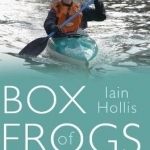
Box of Frogs: Memoirs of a Canoeing Cyclist
Book
In 2015, Iain Hollis embarked on a 4,000 mile solo cycling adventure around Europe. Medically...
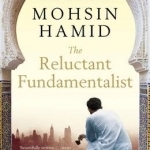
The Reluctant Fundamentalist
Book
The Reluctant Fundamentalist is Mohsin Hamid's thrillingly provocative international bestseller...
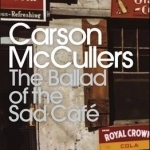
The Ballad of the Sad Cafe: Wunderkind; The Jockey; Madame Zilensky and the King of Finland; The Sojourner; A Domestic Dilemma; A Tree, A Rock, A Cloud
Book
Few writers have expressed loneliness, the need for human understanding and the search for love with...
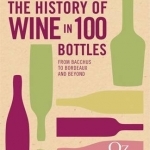
The History of Wine in 100 Bottles: From Bacchus to Bordeaux and Beyond
Book
Winemaking is as old as civilization itself and wine has always been more than just a drink. For...
BookInspector (124 KP) rated The Killing Choice in Books
Jul 1, 2021
This novel is told from multiple perspectives, sharing the thoughts of a very wide variety of characters. The detectives Finn and Paulsen are the ones tasked to solve murders that happened in a very strange circumstances. This crime story is very strongly driven by it’s characters. There are a lot of thoughts shared not only by police, but by the victims’ family as well. The characters are very different and all of them troubled, none of the character is happy in this book. 😀 Every character analise different topic and different feelings, and it does become a little overwhelming sometimes. I really enjoyed the diversity and inclusion of the characters in this book, I like wider representation of people.
As I mentioned before, this novel is more character driven than the plot, that is why, I think the investigation part was quite thin in this book. The surprising discoveries just kind of appear, missing the juicy surprises while investigating. I think all the thinking parts made this book seem quite slow, but on the other hand it allowed the reader to get to know the characters better. I liked that this book has different storylines, and it was interesting to see how all the stories get connected at the end. The topics discussed in this book were all possible aspects of grief, family relationships, drug dealing, guilt, council estate life, mental health issues, revenge, and many more.
The writing style of this book is enjoyable and easy to read. The setting of this book keeps changing, depending on the character, and I really enjoyed that. When the book has many perspectives, I find it difficult to know who is who, especially when their names and surnames are being used without one another. Personally, I prefer either names or surnames, otherwise I am wondering who that person is. 😀 The chapters are pretty short and the pages just flew by for me. I liked the ending of this novel, it rounded up the story very nicely.
So, to conclude, it is a very thought provoking crime story, filled with complex and deeply troubled characters as well as a layered plot. It is a slow burner, that allows the reader to delve deeply into the character’s world.
As I mentioned before, this novel is more character driven than the plot, that is why, I think the investigation part was quite thin in this book. The surprising discoveries just kind of appear, missing the juicy surprises while investigating. I think all the thinking parts made this book seem quite slow, but on the other hand it allowed the reader to get to know the characters better. I liked that this book has different storylines, and it was interesting to see how all the stories get connected at the end. The topics discussed in this book were all possible aspects of grief, family relationships, drug dealing, guilt, council estate life, mental health issues, revenge, and many more.
The writing style of this book is enjoyable and easy to read. The setting of this book keeps changing, depending on the character, and I really enjoyed that. When the book has many perspectives, I find it difficult to know who is who, especially when their names and surnames are being used without one another. Personally, I prefer either names or surnames, otherwise I am wondering who that person is. 😀 The chapters are pretty short and the pages just flew by for me. I liked the ending of this novel, it rounded up the story very nicely.
So, to conclude, it is a very thought provoking crime story, filled with complex and deeply troubled characters as well as a layered plot. It is a slow burner, that allows the reader to delve deeply into the character’s world.
BookInspector (124 KP) rated The Girlfriend in Books
Sep 24, 2020
This whole story was told from three different perspectives, and I think Laura and Cherry shared the spotlight as the main characters, and Daniel was kind of supporting actor. I really enjoyed reading these different perspectives, I like to see what different characters think and how they analyze the situations. One thing was very obvious to me, that no one would be excepted into the “rich circle” with the name like Cherry. It just sounds trashy to me. I really enjoyed the unique personalities, which characters brought to this novel, as well as the complex relationships between each other. If I would have to pick my favourite in this book, I think it would be Daniel, I liked his personality and was feeling pity, that he was stuck in this crossfire.
Even though the narrative was sometimes quite repetitive to me, I enjoyed it. I liked the twists and turns which author incorporated in this novel, they made me more curious about what else the author has up her sleeve. I can easily see authors personal experience in this book. This book felt like some of the movies I saw, I think that’s where author’s knowledge of scripts and film industry comes in, as well as details of the TV serials which Laura was creating. I think that the daughter-in-law – mother-in-law relationship was quite realistic and relatable to some of the readers, I heard plenty of stories about evil mother-in-laws/ daughter-in-law.
I really enjoyed the easy flowing writing style of this novel, as well as great knowledge of London and rich people’s lifestyle. I loved the short chapters of this book, which kept me interested of what will happen next, till the last page. Even though the ending was quite predictable, I think it rounded up the story nicely and left me very satisfied with it. So, to conclude, it is a chilling thriller filled with unique characters and interesting story, which really hooked me, as I really wanted to see how this mother-in-law – daughter-in-law relationship will evolve. I really enjoyed it and I do recommend to give this book a try.
Even though the narrative was sometimes quite repetitive to me, I enjoyed it. I liked the twists and turns which author incorporated in this novel, they made me more curious about what else the author has up her sleeve. I can easily see authors personal experience in this book. This book felt like some of the movies I saw, I think that’s where author’s knowledge of scripts and film industry comes in, as well as details of the TV serials which Laura was creating. I think that the daughter-in-law – mother-in-law relationship was quite realistic and relatable to some of the readers, I heard plenty of stories about evil mother-in-laws/ daughter-in-law.
I really enjoyed the easy flowing writing style of this novel, as well as great knowledge of London and rich people’s lifestyle. I loved the short chapters of this book, which kept me interested of what will happen next, till the last page. Even though the ending was quite predictable, I think it rounded up the story nicely and left me very satisfied with it. So, to conclude, it is a chilling thriller filled with unique characters and interesting story, which really hooked me, as I really wanted to see how this mother-in-law – daughter-in-law relationship will evolve. I really enjoyed it and I do recommend to give this book a try.

